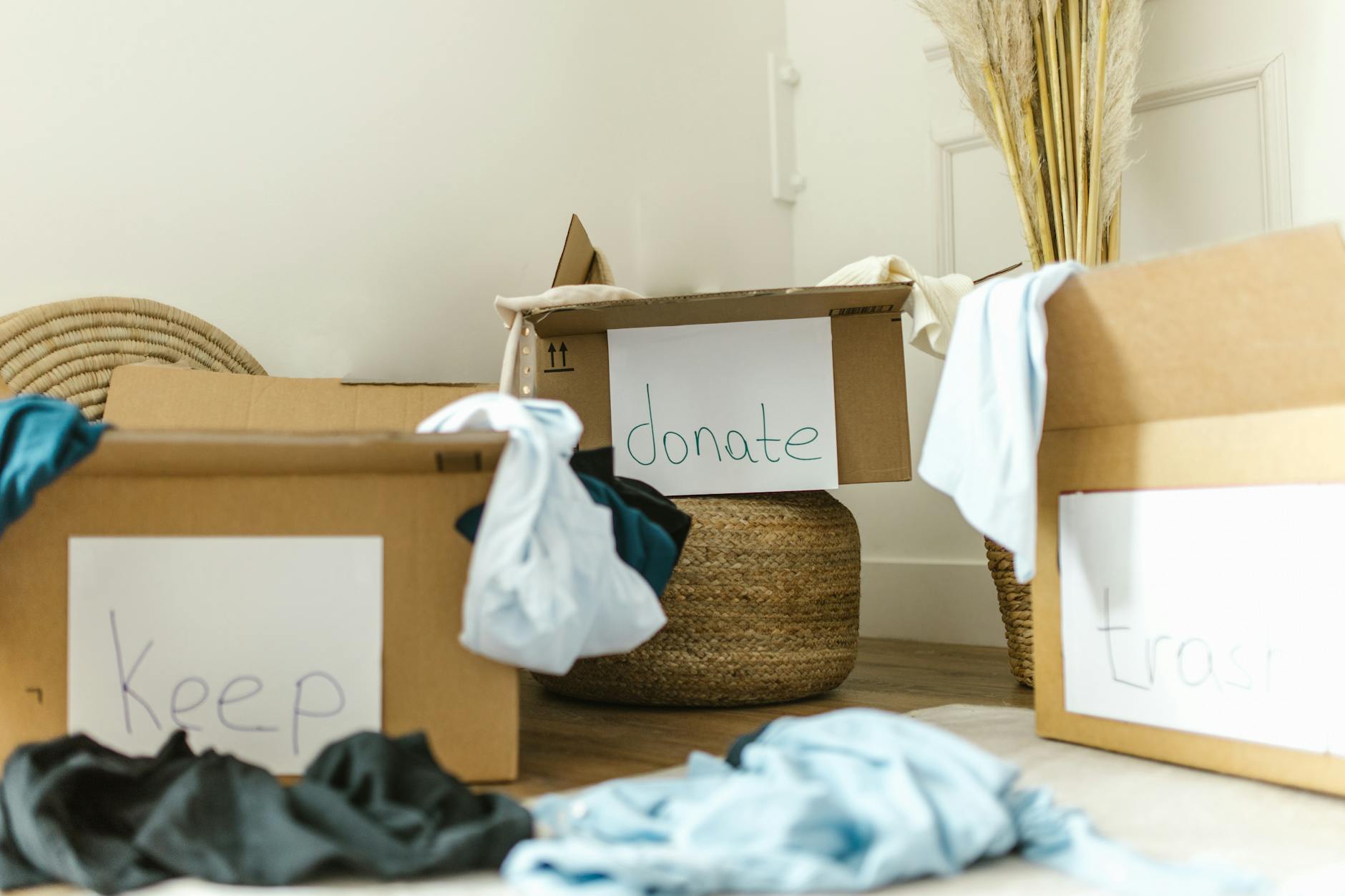Eco‑Friendly Cleaning Solutions: Must‑Have Best Choice for UAE Homes and Workplaces
Eco‑Friendly Cleaning Solutions: Must‑Have Best Choice for UAE residents, expatriates, and professionals is not only a trend—it’s a necessity in an emirate that faces pressing environmental challenges. With the UAE’s hot climate, limited freshwater resources, and growing urban footprints, the choice of cleaning products can significantly influence both household health and national sustainability goals. This feature explains why green cleaning items are essential in the UAE context, outlines the regulatory backdrop, showcases the most reliable eco‑friendly options, and offers practical steps for transitioning to a greener cleaning routine.
—
Why Eco‑Friendly Cleaning Matters in the UAE
The UAE’s environment differs markedly from many other parts of the world. An average household in Dubai uses around 250–350 litres of water per day, far exceeding the global average. The Ministry of Energy and Infrastructure reports a per‑capita consumption of 200 litres in the Gulf, underscoring the urgency to conserve water. Conventional cleaning products often contain synthetic fragrances, parabens, and phosphates that not only stress water treatment facilities but can also release micro‑plastics into tap water.
High temperatures (often above 40 °C in summer) increase evaporation, and the widespread use of air‑conditioning amplifies power consumption. By opting for biodegradable, low‑toxic cleaners, households can reduce chemical runoff, lower VOC (volatile organic compound) emissions, and directly support the UAE Vision 2021 “Environmental Sustainability” targets, where emission reductions and sustainable consumption are highlighted pillars.
Key reasons for choosing eco‑friendly cleaners in the UAE include:
– Water‑safety – Many conventional products contain surfactants that break down water quality in surface streams and aquifers.
– Indoor air quality – Green products usually avoid strong fragrances and harmful fumes, contributing to healthier living spaces.
– Energy efficiency – Eco‑friendly formulations often require lower processing energy, helping consumers meet UAE energy‑saving initiatives.
– Compliance with regulations – The UAE Federal Law on Environmental and Water Management encourages minimal chemical release; using certified green products helps households keep up with future tightening of restrictions.
—
The Core Advantages of Eco‑Friendly Cleaning Products
1. Non‑toxic composition
– No chlorine bleach, ammonia, or phthalates that can trigger asthma or skin irritation.
– Plant‑based surfactants derived from coconut or sugar cane cut down on environmental burden.
2. Biodegradability
– Rapid decomposition in water eliminates long‑term accumulation in the soil or water bodies.
– Supports the UAE’s national waste audit goal of 70‑percent waste diversion by 2030.
3. Reduced carbon footprint
– Packaging often made from recycled PET or biodegradable plastics, aligning with Dubai’s “Zero Carbon” policies.
4. Cost‑saving in the long run
– Lower chemical dosage can reduce water usage, cutting utility bills.
– Fewer accidental slips from slick surfaces translate to reduced repair costs at commercial sites.
—
Regulatory Landscape and Standards Guiding Green Cleaning in the UAE
The UAE has developed a robust regulatory framework that pushes the green transition in domestic and commercial cleaning. Key agencies and initiatives include:
– UAE Federal Law on Environmental and Water Management (No. 7/2008) – mandates the restriction of harmful chemicals in household products.
– Dubai Municipality’s Clean Green Initiative – offers certification for “eco‑friendly” household items that meet stringent VOC and biodegradable parameters.
– Dubai Sustainable Development Strategy (DSDS) – encourages industries to adopt low‑impact cleaning protocols to hit the city’s 2030 sustainability benchmarks.
– DEG (Dubai Electricity and Water Authority) – provides guidelines that link household energy and water usage with recommended products that lower consumption.
Compliance with these regulations not only ensures product safety but also positions residents and businesses as responsible contributors to the UAE’s national agenda.
—
Eco‑Friendly Cleaning Solutions: Must‑Have Best Choice for Everyday Use
Below is a guide to the most effective eco‑friendly products that suit various household and professional scenarios, vetted against UAE standards and global best practices.
1. All‑Purpose Green Cleaners
Suitable for surfaces such as tile, laminate, glass, and polished stone.
– Key Ingredients – Plant‑based surfactants, natural oils (e.g., lemon or citrus), and mild acids like vinegar or citric acid.
– Benefits – Removes soap scum, dust, and light grime without leaving residues that trap dust.
– UAE‑approved: Must carry DMC (Dubai Municipality Certification) for low VOC content.
2. Glass & Mirror Cleaners Made with Distilled Water
– Features – No ammonia or synthetic dyes; use essential oils for a streak‑free shine.
– Why it matters: Reduces release of volatile chemicals into homes with high humidity, a common issue in Abu Dhabi’s desert climate.
3. Bathroom & Tile Sanitizers with Natural Antibacterial Agents
– Common agents – Tea tree oil, eucalyptus oil, or clove extracts.
– Compliance Note: Must not contain synthetic antiseptics that exceed the UAE’s toxic chemical thresholds.
4. Kitchen Degreasers Utilizing Enzymatic or Acidic Action
– Advantages – Enzymes break down grease into water and bicarbonate, eliminating the need for harsh chemicals that pollute municipal wastewater.
– UAE guidance: Should be free from phosphates, which are disallowed under the Federal Law.
5. Fabric & Upholstery Fresheners Based on Natural Aromatics
– Components – Baked soda, essential oils, and plant‑derived fragrance carriers.
– Outcome: Clears odors without exposing occupants to chemical allergens.
6. Reusable, Organic‑Cotton Cleaning Cloths & Micro‑fiber Swabs
– Eco‑impact: Low production energy and recyclable fibers.
– Product Tip: Choose 100 % organic cotton with certified GOTS (Global Organic Textile Standard) labeling.
—
How to Successfully Transition to Eco‑Friendly Cleaning
Switching to greener products can be straightforward if you follow these steps:
1. Audit Your Current Inventory
– List all cleaning products. Identify ones containing phosphates, ammonia, or high VOC levels.
2. Educate Household Members
– A quick briefing on health benefits of low‑toxicity cleaners ensures consistent usage.
3. Start with Surface Tests
– Apply a small amount on a hidden spot to confirm no surface damage.
4. Replace One Product at a Time
– Ease into the change; for instance, swap out all‑purpose cleaner first, then detergents.
5. Introduce Reusable Tools
– Transition to microfiber cloths, which reduce consumption of disposable paper wipes.
6. Re‑evaluate and Iterate
– After one month, check if cleaning efficiency has improved or if you need a stronger solution for tough stains.
Implementing these steps helps maintain cleaning standards while meeting UAE environmental policies.
—
Eco‑Friendly Cleaning in Commercial Settings
Large venues—hotels, offices, and healthcare facilities—face higher cleaning loads and therefore have a larger environmental footprint. Companies can adopt the following measures to remain compliant with the UAE’s commercial hygiene laws:
– Implement Cleaning Contracts that Include Green Standards
– Ensure suppliers present certifications from Dubai Municipality or international bodies such as the EU Ecolabel.
– Adopt Automatic Dry‑Mop Systems with Recyclable Pods
– These systems cut cleaning water use by 30 % and prevent the disposal of chemicals in municipal drains.
– Use Industrial‑Grade Enzymatic Cleaners
– Ideal for food‑service kitchens or laundries; they break down protein and sugar residues, making them safer for wastewater treatment facilities.
– Regular Staff Training on Low‑Impact Techniques
– Provide certification courses on eco‑friendly cleaning, which align with the Ministry of Education’s CSR (Corporate Social Responsibility) guidelines.
By incorporating these practices, commercial operations not only adhere to regulations but also showcase leadership in sustainability—an increasingly important criterion for attracting tenants and visitors in the UAE.
—
Future Outlook: Green Cleaning Trends in the UAE
– Smart Cleaners with AI‑Driven Dispensation
– Smart dispensers that mix the exact mixture of eco‑friendly solutions for specific surfaces will reduce waste.
– Biodegradable Packaging Innovations
– Expect greater adoption of glass‑based refills or biodegradable film wrappers, especially in retail.
– Standard Harmonisation Across Emirates
– Inter‑emirate regulatory alignment is advancing, potentially leading to unified safety and environmental certifications.
– Rise of “Zero‑Waste” Cleaning Kits
– Kits that combine reusable cloths, natural cleaning liquids, and refill stations are gaining popularity among environmentally conscious consumers.
—
Conclusion
Eco‑Friendly Cleaning Solutions: Must‑Have Best Choice for UAE households and businesses is not a luxury but a strategic adaptation to the emirate’s unique climate, resource constraints, and evolving regulatory environment. By selecting green products that comply with local laws, residents can safeguard indoor air quality, conserve precious water resources, and support the UAE’s environmental initiatives.
From everyday all‑purpose cleaners derived from plant oils to sophisticated commercial enzyme‑based solutions, the evidence is clear: a cleaner environment, healthier occupants, and cost savings are all attainable through the smart choice of eco‑friendly cleaning products. Embracing this shift demonstrates a commitment—both personal and collective—to the UAE’s ambition of sustainable prosperity.









